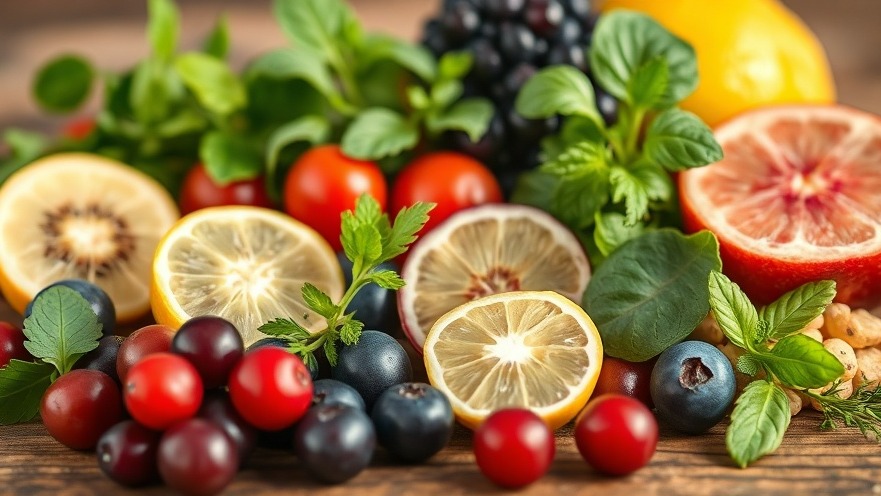
The Power of Antioxidants: A Comprehensive Guide for Medical Practices
Fostering strong patient relationships is at the heart of concierge medicine, and one of the avenues for creating deeper connections is through nutrition. Antioxidants, essential compounds that protect our cells from damage caused by free radicals, can be a vital topic for your practice. Understanding and promoting antioxidant-rich diets not only benefits your patients’ health but also positions your practice as a leader in holistic care.
What Are Antioxidants and Why Are They Important?
Antioxidants are substances that help neutralize free radicals in the body, potentially reducing the risk of chronic diseases such as heart disease and cancer. They are found in a variety of foods, particularly fruits and vegetables. For concierge practitioners, educating patients about antioxidants can inform better dietary choices and improve their overall health outcomes.
Encouraging Healthy Eating Among Your Patients
Incorporating antioxidant-rich foods into your patients’ diets can be a simple yet effective strategy to enhance their health. Some key food sources to highlight include:
Berries: Blueberries and strawberries are packed with antioxidants known to support brain health.
Nuts: Walnuts and pecans not only offer healthy fats but are also rich in antioxidants.
Green Leafy Vegetables: Spinach and kale should be staples in patients’ meals for their high levels of vitamins and minerals.
By recommending these foods, you can help facilitate healthier eating habits that improve patients’ well-being.
Patient Connection Through Nutrition Education
As a concierge practice, creating meaningful interactions is essential. Discussing the benefits of antioxidants can lead to informative, engaging conversations with patients. You can leverage this connection by suggesting cooking classes or informational workshops on nutrition. Collaborations with registered dietitians can further enrich these initiatives, making your practice a go-to resource for comprehensive patient education.
Bridging the Gap Between Medicine and Wellness
Integrating nutrition and antioxidant education into your practice promotes a holistic approach to patient care. Educating patients on the importance of antioxidants ties directly into mental health, as nutrition profoundly impacts mood and cognitive function. By adopting a wellness-centric viewpoint, your practice not only nurtures patient relationships but also enhances outcomes, leading to higher satisfaction rates.
Future Trends in Antioxidant Research and Patient Care
Research continues to reveal groundbreaking insights about antioxidants and their roles in health. As more studies identify the relationships between antioxidants and mental health, practitioners in concierge medicine should stay updated on these findings. This foresight allows you to provide cutting-edge recommendations tailored to modern health needs.
Empathetic Communication as a Cornerstone of Care
In order to effectively promote antioxidant awareness, practitioners must engage in empathetic communication. Use active listening techniques to understand your patients’ dietary habits and barriers they face in making healthier choices. Empathy fosters trust, making patients more open to implementing your suggestions.
Crafting a Unique Value Proposition for Your Practice
In a competitive concierge practice landscape, emphasizing comprehensive care through nutrition and antioxidants can be a cornerstone of your marketing strategy. Positioning your practice as a leader in patient education will not only enhance your reputation but also draw in patients who are looking for a more personalized and integrative approach to their healthcare.
In conclusion, highlighting the importance of antioxidants in patient care provides an additional layer of connection between you and your patients. This not only improves their health but reflects your commitment to a compassionate, holistic practice.
 Add Row
Add Row  Add
Add 






Write A Comment